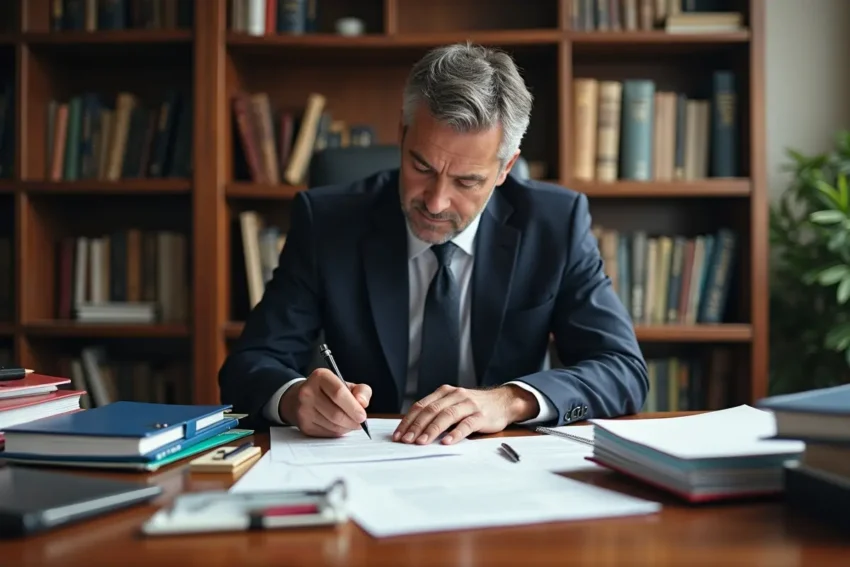Driving under the influence (DUI) charges can have serious consequences, including hefty fines, license suspension, and even jail time. However, not all DUI evidence is airtight, and there are several areas where the defense can challenge the prosecution’s case.
Understanding what can be disputed in court can make a significant difference in the outcome of a case. For those facing DUI charges, seeking guidance from experienced attorneys like Banks & Brower can help identify weaknesses in the evidence and develop a strong defense strategy.
Breathalyzer Accuracy
Breathalyzer results are among the most common forms of evidence in DUI cases, but they’re not foolproof. Calibration problems, environmental conditions, or medical issues like acid reflux and diabetes can throw readings off.
Errors can also occur if the test isn’t administered correctly by law enforcement. For this reason, defense attorneys often review calibration logs and maintenance records to identify flaws. When problems are uncovered, the reliability of the breath test can be called into question in court.
Field Sobriety Tests
Field sobriety tests are another area where DUI evidence can be disputed. These tests, such as the walk-and-turn or the one-leg stand, are subjective and depend heavily on the officer’s judgment. Factors such as uneven pavement, poor lighting, or a suspect’s physical limitations can affect performance.
An experienced defense attorney may argue that the test conditions were not ideal or that the results were misinterpreted. Video evidence or expert testimony can also be used to question the officer’s observations.
Blood Test Procedures
Blood tests are generally considered more accurate than breath tests, but they are not immune to errors. The collection, storage, and analysis of blood samples must follow strict protocols. Any deviation, such as contamination, mishandling, or delayed testing, can compromise the accuracy of the results.
Additionally, laboratories can make procedural mistakes, and the defense can request records to ensure the chain of custody was maintained. Challenging the validity of blood test results is a common strategy in DUI cases.
Officer Conduct
The behavior and procedures of the arresting officer can also be challenged. For example, if the officer lacked probable cause to initiate a traffic stop, any evidence gathered afterward could be inadmissible.
Similarly, failure to read Miranda rights or follow proper arrest protocols can affect the case. Defense attorneys often review police reports, bodycam footage, and dashcam videos to look for procedural mistakes that may weaken the prosecution’s evidence.
Video and Audio Evidence
In some cases, video or audio recordings from police bodycams or traffic cameras are used as evidence. While these can provide valuable insight, they are not always conclusive. Poor camera angles, audio distortions, or incomplete footage can raise questions about accuracy.
The defense may argue that the recordings were edited, misinterpreted, or do not clearly show the alleged impairment. Careful examination of this evidence can be crucial in building a strong defense.
Expert Testimony
Expert witnesses often make a critical difference in DUI cases. Specialists such as toxicologists, medical experts, or accident reconstruction professionals can offer explanations that challenge the state’s evidence.
For example, they might show that a low blood alcohol level does not necessarily mean impairment, or that certain behaviors were the result of a medical condition rather than intoxication. Their testimony can add weight to the defense and, in many cases, strongly influence the outcome.
Documenting Discrepancies
Thorough documentation and evidence collection are critical in disputing DUI claims. Keeping track of police reports, test results, and witness statements helps the defense identify inconsistencies or error in the prosecution’s cases.
Even small discrepancies, like time stamps or officer notes, can be leveraged to challenge the prosecution’s case. Attorneys specializing in DUI defense, including Banks & Brower, know how to scrutinize every detail for potential weaknesses. Proper documentation strengthens the ability to argue that the evidence may not meet the legal standard required for conviction.
Conclusion
Challenging DUI evidence requires a detailed understanding of legal procedures and scientific testing methods. From breath and blood tests to field sobriety evaluations and officer conduct, multiple aspects of a case can be questioned.
By carefully reviewing each piece of evidence, identifying errors, and presenting expert testimony, a skilled attorney can build a defense that may significantly affect the outcome. Consulting experienced lawyers, such as Banks & Brower, ensures that every possible avenue to dispute the evidence is explored.

